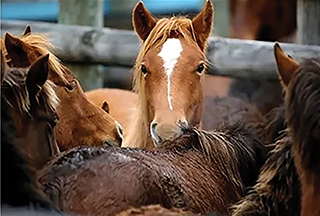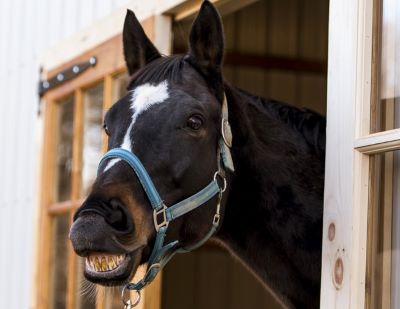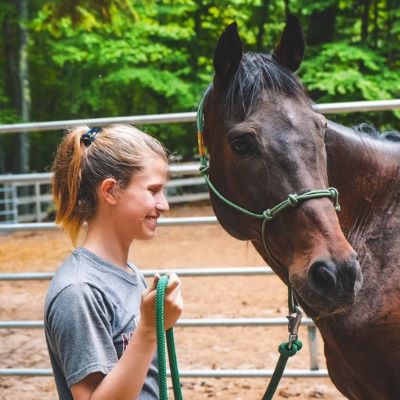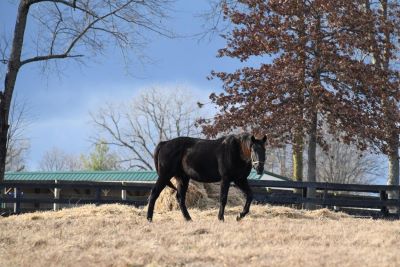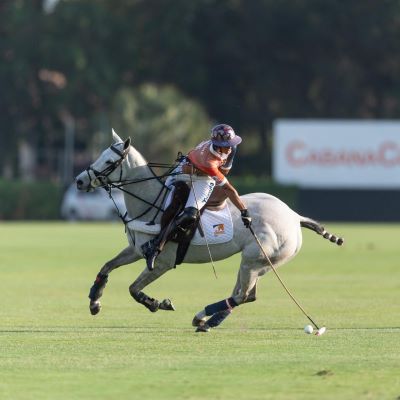The EQUUS Foundation will once again partner with the Hampton Classic Horse Show to present adoptable horses at the Hampton Classic’s Animal Adoption Day on Monday, August 30, to promote the welfare of all of America’s horses at all stages of their lives. The gathering will showcase rescued and adoptable horses – from off-track Thoroughbreds to mini horses.
EQUUS Foundation EQUUStar, top international equestrian, and event sponsor, Georgina Bloomberg, will be meeting and greeting horse lovers who attend. Bloomberg will be joined by Jill Rappaport, renown animal advocate and award-winning author and media personality, Valerie Angeli, EQUUS Foundation VP of Engagement, Lynn Coakley, EQUUS Foundation President, and other EQUUS Foundation EQUUStars, including top world-class equestrian, Brianne Goutal-Marteau.
“I am thrilled to sponsor and appear at this important day for animal welfare and adoption at the Hampton Classic once again this year,” said Bloomberg. “I love how the Hampton Classic has embraced the message of responsibility for all horses and the animals we love and has provided this day for us to spread the message and find more animals hope and homes.”
The adoptable horse demos and meet and greet will take place in Hunter Ring 2 from 12:00 PM to 1:00 PM and will also feature the HEART Horse Ambulance which will be open to visitors for tours. Parking and admission are free on Monday, August 30th.
Joining the EQUUS Foundation with adoptable horses this year at Hampton Classic Adoption Day will be Rising Starr Horse Rescue, Wilton, CT; Storeybrook Farm, Waterbury, VT; Hidden Pond Farm, Brentwood, NH; and the Retired Racehorse Project, Edgewater, MD. The live event will also have a virtual component featuring the adoptable horses of EQUUS Foundation Guardian charities nationwide on the EQUUS Foundation Next Chapters platform.
“We are so grateful to be back (after COVID) and to have the opportunity to inspire Olympic and world class equestrians and horse lovers of all sorts who are excited to learn how we can all help at risk horses and to meet some rescued/adoptable horses,” said Angeli. “As a community of people who love horses, we need to step up and take care of them – all of them – and make sure they always have a safe and happy place to go.” Social media is encouraged to help spread the word about horses that need homes.
Contact the Hampton Classic at PO Box 3013, Bridgehampton, NY 11932, Tele: (631) 537-3177, E-Mail: Info@HamptonClassic.com, Website: www.hamptonclassic.com.
To learn more about the EQUUS Foundation and their mission, please visit www.equusfoundation.org.
